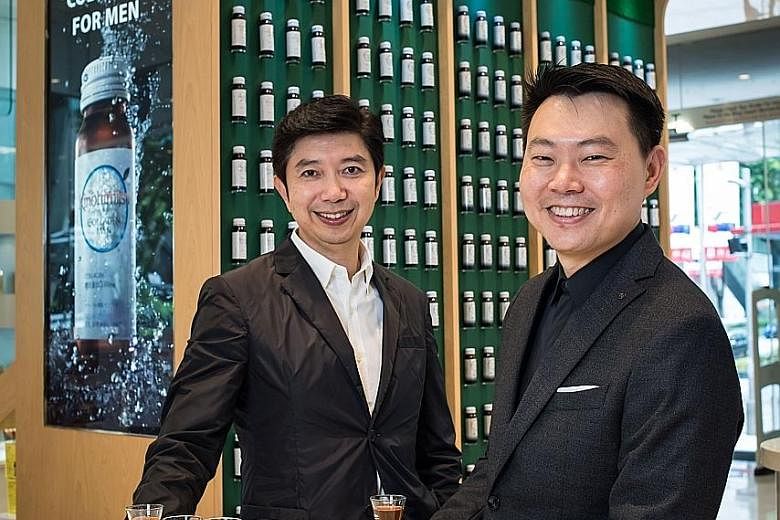From the get-go, bio-nutraceutical firm Kino Biotech knew it wanted to flourish in China, an economic powerhouse and a consumer market with immense potential.
When it first ventured into the country in 2011, it was still a traditional brick and mortar business, distributing beauty and healthcare products under proprietary brands such as Activa and Kinohimitsu.
The firm is known for products such as collagen drinks, also referred to as "functional drinks", which are key to its business.
By that point, it had already had a footprint in South-east Asian markets such as Malaysia, Vietnam and Indonesia, as well as home base Singapore.
But breaking into the Chinese market turned out to be a whole new ball game.
Executive chairman Ting Yen Hock said: "We tried to replicate our success from our South-east Asian expansion plan. In the early days, we worked closely with chain pharmacies in the region, so we also tied up with them in China.
"But they had huge bargaining power there, which meant high listing fees, and a huge portion of our margin would go to them for distributing our products."
The firm also forked out high marketing costs. It hired top celebrities, such as Chinese A-list star Vicki Zhao, to endorse its products, further adding hundreds of thousands of dollars to its marketing bill.
Even after spending such high sums, Kino Biotech found that it was still unable to reach end-consumers in China.
After all, in such a hot market, it was competing against multinational corporations with deep pockets. It also had to go up against local Chinese firms that could take advantage of rules allowing them to put their products on shelves much faster than foreign firms.
"We lay low for a while and re-strategised, knowing we had to wait for opportunities," Mr Ting said. "We knew China was a market we wanted to be in, and once you decide that, you've to be committed to the market even though you're losing money from the onset."
With the boom of e-commerce and mobile commerce in China, the firm saw a great opportunity to re-enter the market in a whole new way, by building its own e-commerce platform called Kinofy.
The plan is to not only sell Biotech's products but also other Singapore health and beauty items on this platform.
Its products are now on the platform, and it hopes to add another five to 10 Singapore brands on the platform in a year's time.
To get its e-commerce strategy moving, Biotech started talking to IE Singapore about its ambitions in China.
"In the second half of 2015, IE Singapore organised a seminar with Chinese experts who came to explain cross-border e-commerce," Mr Ting said.
IE then helped Kino Biotech to form a relationship with Sinopharm, a Chinese state-owned pharmaceutical-products distributor, so that it now distributes its products via Sinopharm's direct sales channel.
IE also gave the firm market insights on cross-border trade, reinforcing that e-commerce was an important platform for consumer brands entering China, and fast-tracked the firm's progress in the e-commerce space.
It helped Kino Biotech with listing on Alibaba's Tmall Singapore shop, allowing Chinese customers to try out its products and helping the firm learn about this platform.
Kino Biotech chief executive Chong Ka Wee also noted how IE arranged for study trips to the United States and China for Kino Biotech's key management to gain deeper insights.
Working with IE on its manpower and brand strategy, Biotech also added 10 staff members to create a new team with digital skills such as graphic design and digital marketing.
IE also provided the Global Company Partnership Grant to help Biotech implement the e-commerce strategy.
Besides selling to entrepreneurs and consumers on WeChat, a Chinese messaging app, the firm is now in the early stages of testing its e-commerce platform.
"The platform has allowed us to increase our product registrations, or the products we can sell in China, by almost tenfold. Another key advantage we have is the data of consumers," said Mr Ting, added that the data of 5,000 consumers has been gathered in two months.
"There was a lot of media wastage with marketing via the traditional way. With the technology available, we will be able to create targeted messages and reach out to specific consumers."
Find out more about other companies that have transformed their business overseas and how IE can help - http://www.iesingapore.gov.sg/Assistance

